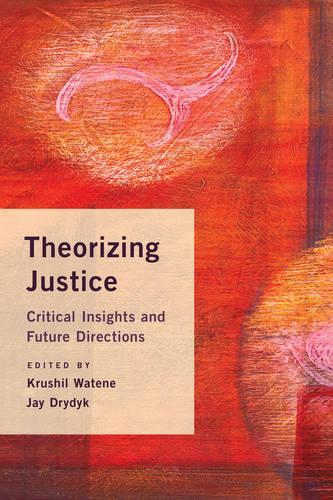
Theorizing Justice: Critical Insights and Future Directions
(Paperback)
Available Formats
Publishing Details
Theorizing Justice: Critical Insights and Future Directions
By (Author) Krushil Watene
Edited by Jay Drydyk
Bloomsbury Publishing PLC
Rowman & Littlefield International
11th July 2016
United Kingdom
Classifications
Tertiary Education
Non Fiction
Social and political philosophy
172.2
Physical Properties
Paperback
210
Width 150mm, Height 229mm, Spine 15mm
308g
Description
One of the most important contributions to contemporary political philosophy, Rawlss A Theory of Justice, re-ignited political philosophy and revolutionized how we theorize about justice. Rawlss approach to justice advanced political philosophy in important and valuable ways most significantly in the way that it showed that political philosophy remained relevant for our lives and our world. Unsurprisingly, over forty years later, social and global realities present theories of justice with new challenges. This volume examines what these new challenges are, and whether contemporary theories are in a position to respond to them. The collection brings together essays that push the boundaries of justice theorizing in new directions, and that begin to construct a new paradigm. The collection contributes to the creation of a platform from which new ideas and new conversations, about the challenges and opportunities for justice in our world, can be further explored and developed.
Reviews
If we want to address cases of injustice, we need to rethink our theories of justice. That requires a critical analysis of the assumptions in liberal theories of justice as well as the development of alternatives. Theorizing Justice makes important contributions to this project, and should be required reading for anyone interested in justice for the world as it is. -- Ingrid Robeyns, Professor of Ethics, Utrecht University
This collection stimulatingly explores a great variety of questions that arise under the umbrella of justicefrom Rawlss question about the basic structure of society to questions about minimal, fundamental, and transitional justice; justice for indigenous peoples; justice in circumstances with more than moderate scarcity; and morehere appropriately addressed by a strikingly diverse set of distinctive authorial voices. -- Henry S. Richardson, Professor of Philosophy, Georgetown University
Author Bio
Krushil Watene is Lecturer in Philosophy at Massey University, New Zealand. She is of Ngti Manu, Te Hikutu, Ngti Whtua rkei, and Tongan descent. Jay Drydyk is Professor of Philosophy at Carleton University, a former President of the International Development Ethics Association, and a Fellow of the Human Development and Capability Association. He is the co-author of Displacement by Development (CUP, 2011). Contributors: Tim Mulgan, Professor of Philosophy, University of Auckland, New Zealand, and University of St Andrews, UK; Colleen Murphy, Associate Professor of Philosophy, University of Illinois at Urbana-Champaign, USA; Amartya Sen, Thomas W. Lamont University Professor, and Professor of Economics and Philosophy, Harvard University, USA; Mozaffar Qizilbash, Professor of Economics and Philosophy, University of York, UK; Jay Drydyk, Professor of Philosophy, Carleton University, Canada; Thom Brooks, Professor of Law and Government, University of Durham, UK; Krushil Watene, Lecturer in Philosophy, Massey University, New Zealand; Rutger Claassen, Associate Professor of Ethics and Political Philosophy, University of Utrecht, Netherlands; Stacy J. Kosko Assistant Director MIDCM, University of Maryland, USA
